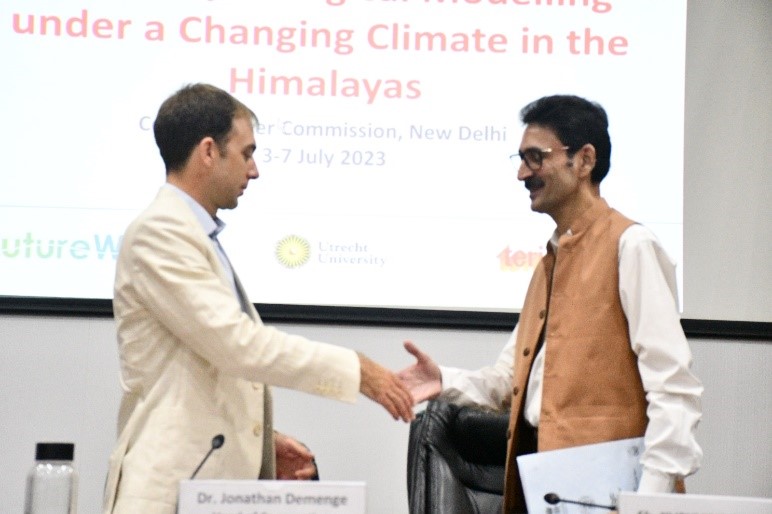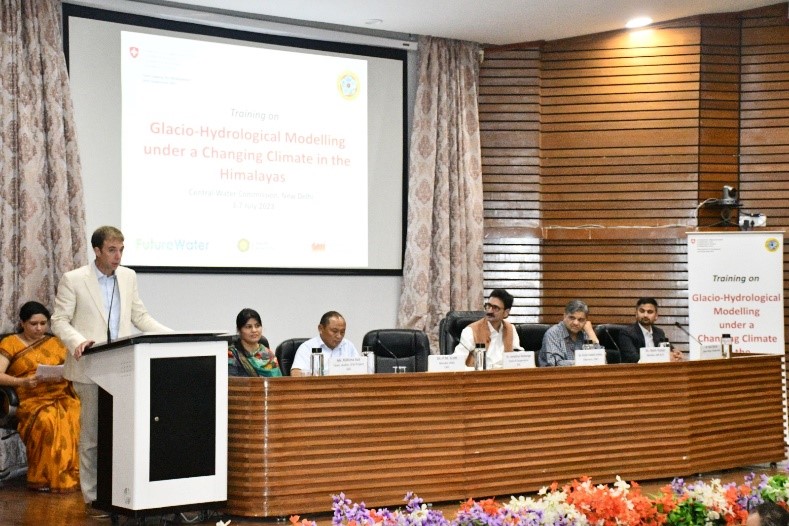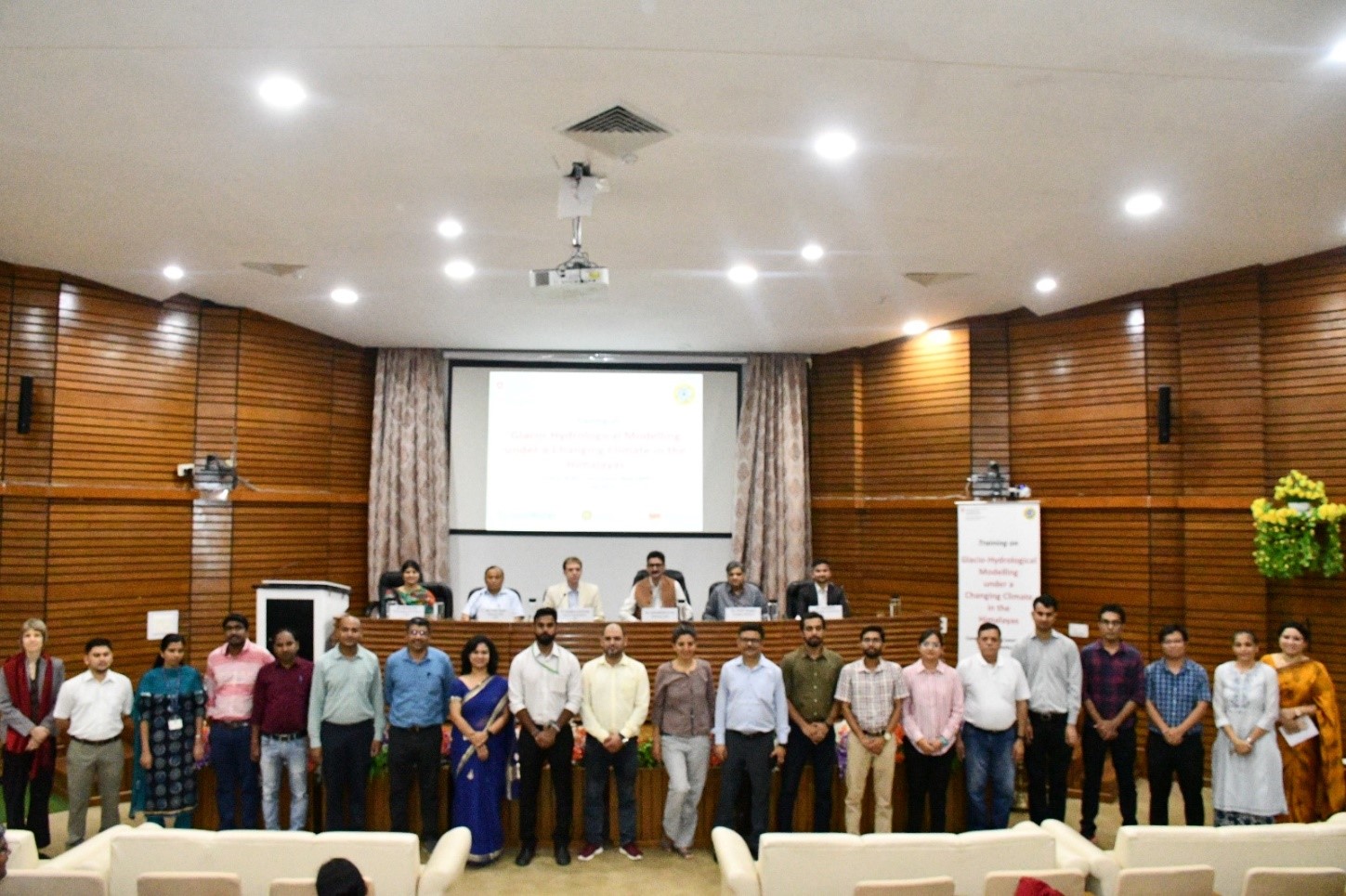


The Swiss Agency for Development and Cooperation (SDC), in collaboration with the Central Water Commission (CWC), organised a training program on "Glacio-Hydrological Modelling under a Changing Climate in the Himalayas" from July 3rd to July 7th, 2023 at CWC, New Delhi.
This unique and transformative training program aimed to analyze the accelerating rate of glacial melt in the Himalayas, which poses serious consequences to the freshwater ecosystems in downstream river basins.
Dr. Jonathan Demenge, Head of Cooperation at SDC, in the inaugural session, highlighted the need to develop climate-responsive glacio-hydrological models that analyse flow components and future projections in response to climate change in order to better understand the behaviour and contribution of Himalayan glaciers.
Shri Kushvinder Vohra, Chairman Central Water Commission, stressed the growing demand for fresh water across all sectors, including agriculture, industry, and domestic use. In light of this, it is crucial for decision-makers to address the climate change-induced variability and uncertainty in water availability in the Himalayan region.
Under the umbrella of the Strengthening Climate Change Adaptation in the Himalayas (SCA-Himalayas) project, SDC and CWC are working closely together to enhance water resources management in the region. To achieve this, a consortium of experts from Future Water (Netherlands), Utrecht University (Netherlands), University of Geneva (Switzerland), and TERI (India) has been entrusted to develop Glacio-hydrological and Water Allocation Models, with specific focus on the Dingad catchment and Bhagirathi Valley in Uttarakhand.
The training program was led by a team of experts from FutureWater and the University of Utrecht to provide theoretical and hands-on training on the state-of-the-art glacio-hydrological modelling tools employed in this ground-breaking project. The program emphasized the glacio-hydrlogical modelling toolkit's integration with water allocation models, culminating in the development of glacio-hydrological modelling guidelines, a collaboration with the Central Water Commission.
The five-day training program provided participants with the necessary knowledge and skills to tackle the challenges posed by climate change in the Himalayas and covered practical sessions on glacio-hydrological modelling. Participants who completed the training program received a training certificate, testament to their commitment to enhancing their expertise and contributing to the sustainable development of the region.
We anticipate that this training program would pave the way for new scientific advancements and policy solutions, leading to effective climate change adaptation actions in the Himalayas.







